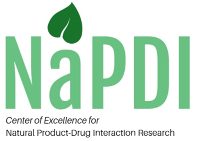In Vitro
- Biorelevant intestinal solubility of THC and CBD ranged from approximately 28-40 µM.
- Both THC and CBD were highly bound to plastic and microsomal proteins (>90%); highlighting the importance of including binding limitations in assessment of in vitro cannabinoid inhibition potency towards CYPs.
In Vitro to In Vivo Extrapolation
- Binding corrected CBD in vitro inhibition potency towards CYP2C9, CYP2C19, CYP2D6, and CYP3A4 indicated a strong potential for CBD-mediated intestinal and pre-systemic hepatic interactions involving substrates of all four CYP isoforms.
- Binding corrected THC in vitro inhibition potency towards CYP2C9, CYP2C19, CYP2D6, and CYP3A4 indicated a strong potential for THC-mediated intestinal interactions with CYP3A4 substrates and CYP2C9 mediated presystemic hepatic interactions
- Evaluation of in vitro THC metabolite (11-OH-THC and COOH-THC) mediated interactions suggest limited potential for CYP mediated interactions.
Clinical
Definitive assessment of clinical cannabinoid-drug interaction potential is pending evaluation by the NaPDI Pharmacology Core.
